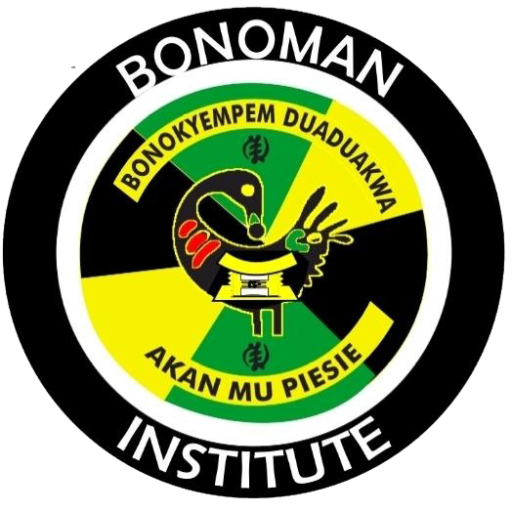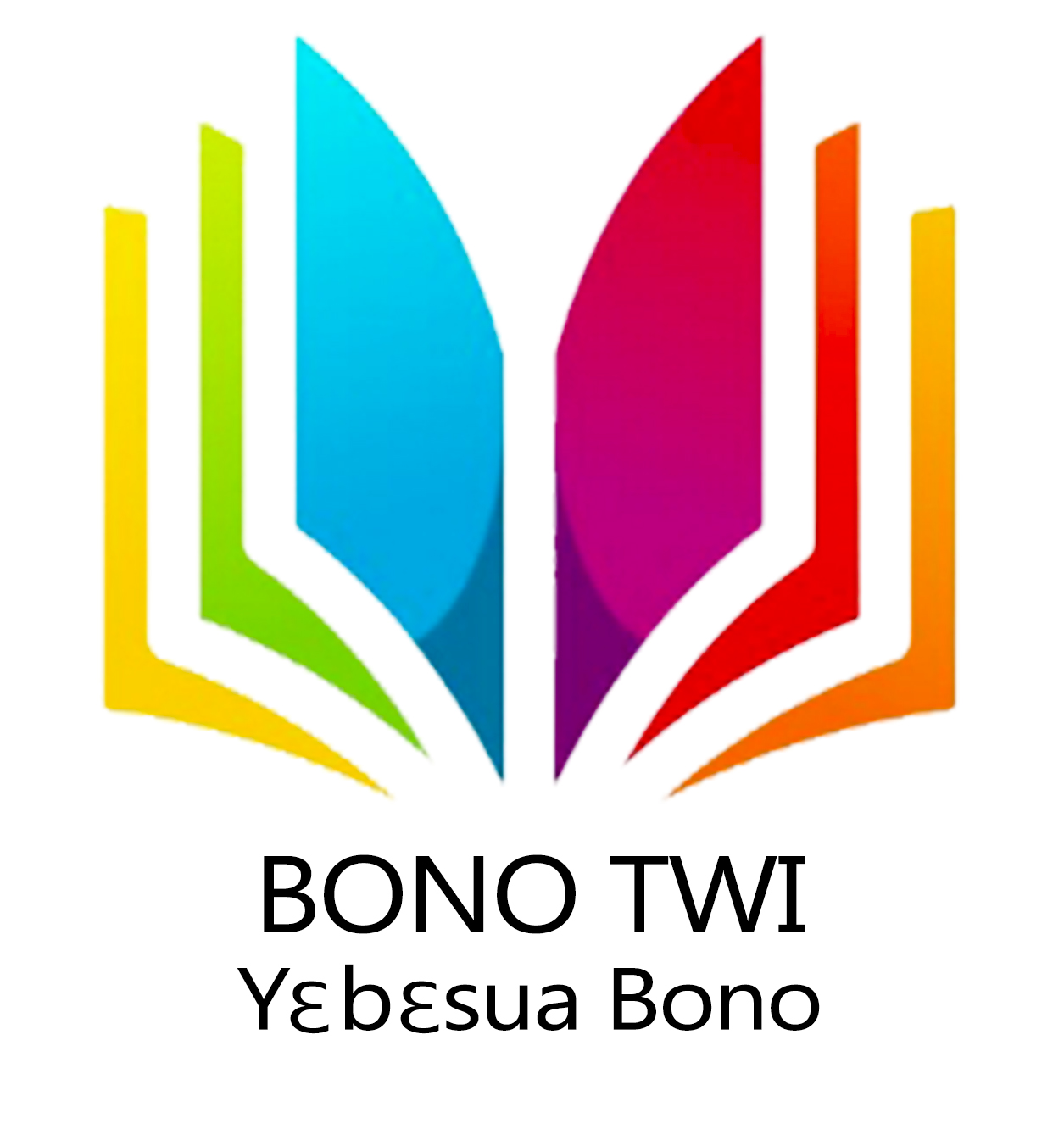
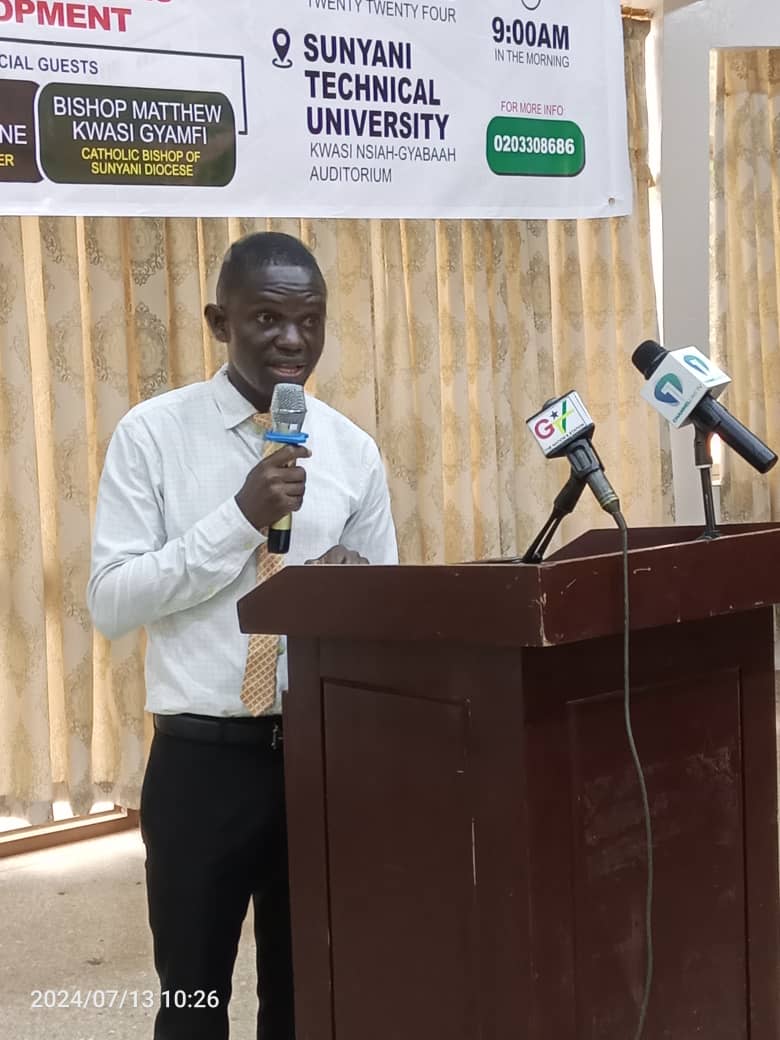
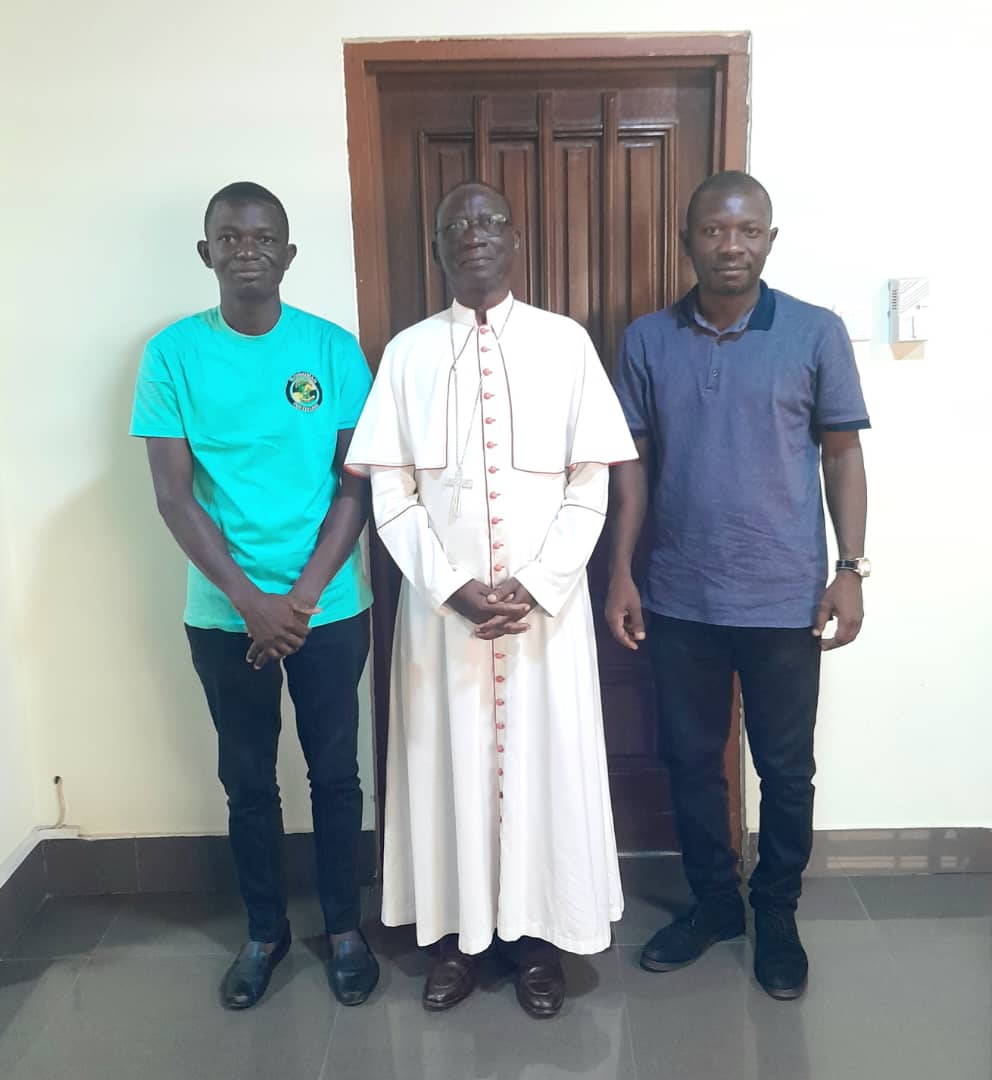
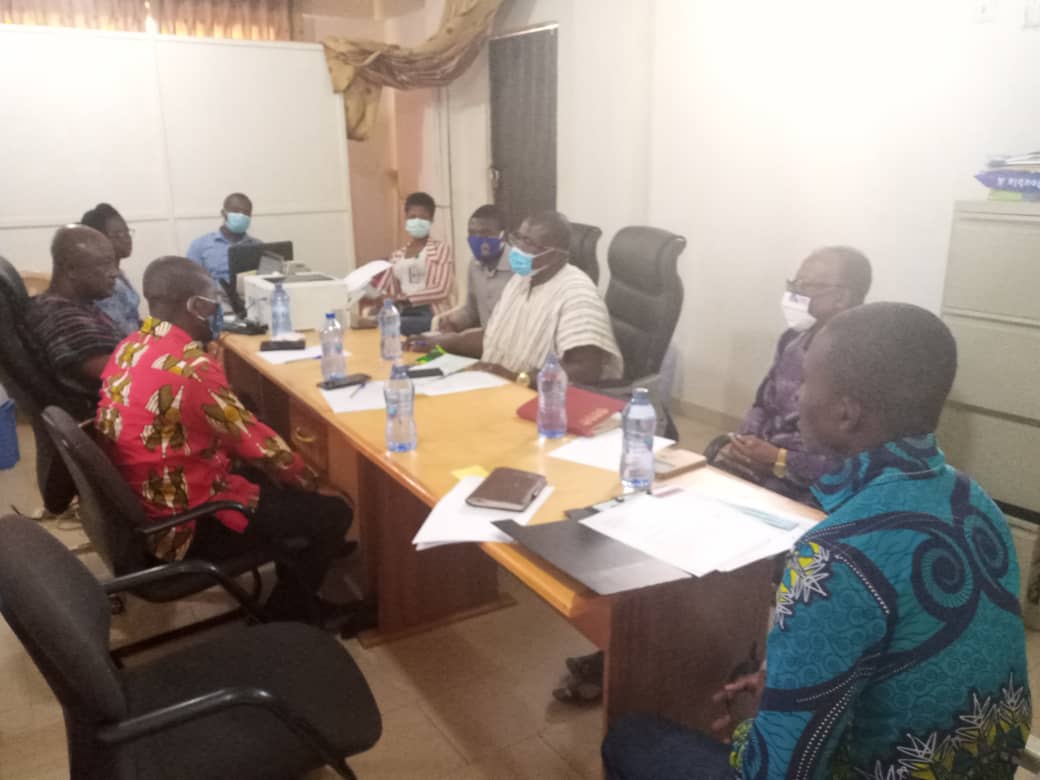
The Bono Twi Project is a special project that is being carried out by Bonoman Institute to promote the Bono Twi Language for academic purposes.
Bonoman Institute is an Institution established to bring the Bono people together for their development within and beyond Ghana. Development cannot be guaranteed if the people are not prepared for it, that is why Bonoman Institute as a policy think-tank of development seeks to undertake several advocacies and programmes to enhance the well-being of the Bono people to enable them contribute towards development in Ghana and globally.
Bono is one of the tribes of the Akan ethnic group. The Bono Kingdom with Bonomanso as its capital was the first centralized Akan Kingdom to be established in the 13th century where Akans lived before they migrated to their present geographical locations when they arrived from the Old Ghana Empire. The Bono people are regarded as pioneers(Piesie) in Akandom and cradles of Akan culture and civilization. Bono Twi is one of the dialects of the Akan Language.
In Ghana, Bono Twi is mostly spoken in Bono,Bono East and Ahafo regions and also partly in the Western North Region. Bono is also spoken in the Northeast of Ivory Coast precisely in the Gontougo Region. Bono is widely spoken by over four million people both in Ghana and Ivory and by Bono people across the globe. It is unfortunate this dialect mostly referred as the mother tongue of Akan language with great prospects is not given much scholarly attention.
This Project has become very crucial for academic pursuit,since language is the core foundation of every society. This intervention is engineered to save the Bono Twi Language from extinction. As Bono cities and towns are becoming cosmopolitan, the language is not far from being endangered. Documenting the Bono Twi Language would be of great academic, cultural and economic benefits. Hence, it has become very relevant to mobilize funds and resources to support this great and laudable initiative to make it a success.
When the Bono Twi Language is used as a medium of instruction in classroom and examined on, it will be of great cultural, academic and economic benefits and also bring employment which would go a long way to serve as a guide and sense of pride for the new generation to project the Bono people and Ghana to positively impact the world.
UNESCO believes everyone has the right to learn in their own language and that it is an important means to improving learning, learning outcomes and socio-emotional development.Cultural and linguistic diversity also play key role in sustainable societies and help build peace, tolerance and respect for difference.
Multilingual and multicultural societies exist through their languages which transmit and preserve traditional knowledge and cultures in a sustainable way.
